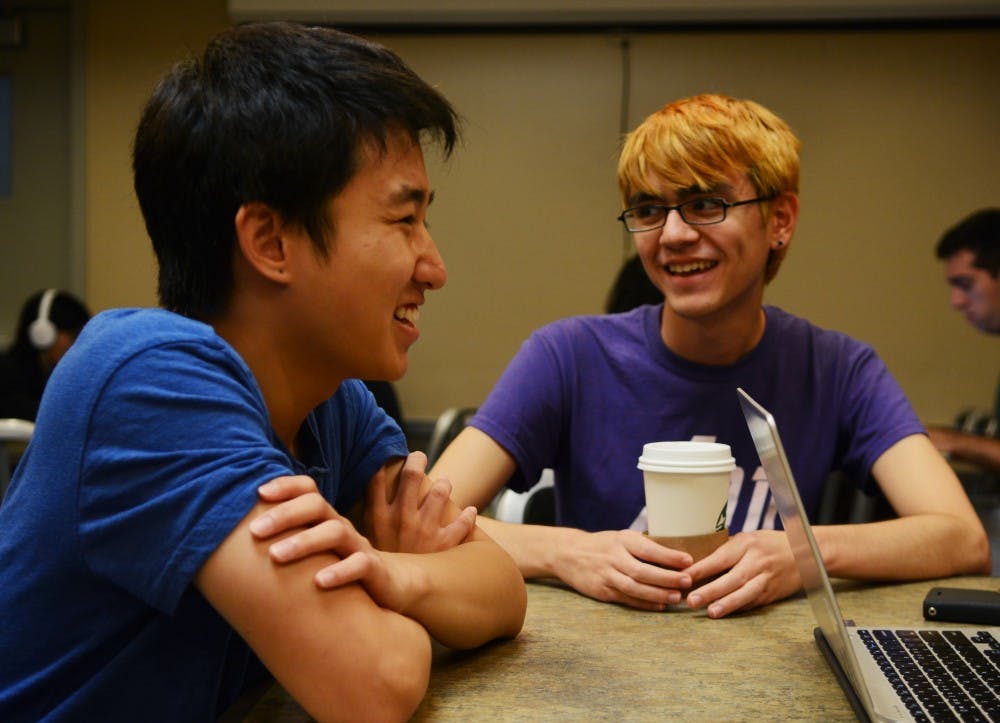
“I never met [a] gay Korean before,” Ian Jeong, a sophomore in Nursing, said. “When you grow up in an environment where there aren’t many out Asians, you feel isolated.”
The 40-50 students who are involved with Penn Q&A — Queer and Asian — are aiming to remedy this problem. The club creates a safe space specifically for them, which has not existed on campus before.
Many Asian-American students are involved in either Asian or LGBTQ communities, but hardly ever both. Jeong has observed that they are more likely to join an Asian community than a group in the Lambda alliance. Even within Queer People of Color, a student group on campus, the representation of Asian queer students was relatively low because a lot of them were reluctant to be active members, he said.
“Gender binary is very strong in [the] Asian community,” Jeong said.
In addition to creating a community on campus, the group aims to support queer asian students.
“Being Asian and LGBT, we have our own specific issues we have to deal with that other LGBT minorities don’t have to,” Kevin Lin, a sophomore in Wharton and the founding member, said.
For instance, coming out to traditional Asian parents is a huge challenge.
“A lot of East Asian countries in the older generations don’t recognize the existence of LGBT youth,” Eliot Oblander , a sophomore in College and Wharton, said. “They see it like a disease brought in by Westerners.”
Q&A is at the very early stage as a nascent organization. The members wrote their constitution Saturday, and are currently seeking recognition from Lambda Alliance — the umbrella organization for LGBTQ student groups — and Asian Pacific Student Coalition.
The group is currently encouraging a sense of community within the members with upcoming social events.
Q&A is a space for everyone. Out queer students can meet other queer people. For those who are selectively out, the group is a safe space where they can be open, Jeong said.
Even for those who haven’t come out yet, Q&A is an assurance that there is a supportive community. “We want to be very visible,” Jeong said. “Just by being visible, people will know there is a group they can go to.”
The number of LGBTQ-related student organizations on campus is growing, with many of them targeting a specific demographic. Last semester, students founded a club for International LGBTQ students. Existing niche LGBTQ groups on campus include Queer Ladies at Penn, J-Bagel and Queer Christian Fellowship.
“There are both pros and cons of many niche organizations,” Bob Schoenberg , director of the LGBT Center, said. “Pro is that students have identified a place where their specific identities and needs can be addressed.”
On the other hand, Schoenberg also suggested the possibility of collaboration between many organizations can be difficult.
“It’s both an opportunity and a challenge,” he said.
The Daily Pennsylvanian is an independent, student-run newspaper. Please consider making a donation to support the coverage that shapes the University. Your generosity ensures a future of strong journalism at Penn.
DonatePlease note All comments are eligible for publication in The Daily Pennsylvanian.




